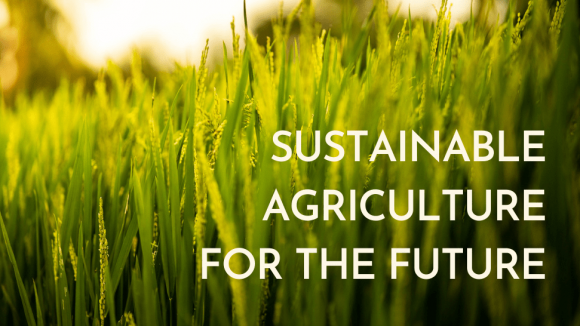
Volga Baikal AGRO’s Terms of Agricultural Sustainability
Terms of Sustainable Agriculture:
@ Volga Baikal AGRO LLC. – We minimize our impact on environment and land-bank, the people we work with and wherever we operate. With climate change happening and nine billion people to feed by 2050, we should not give up on efforts to reduce greenhouse gas emissions, explore and build more sustainable carbon neutral agriculture production practices.
Agricultural GHG emissions, make up about 25% of global GHG emissions, but there is a lot that can be done to reduce this. Environmental stewardship refers to responsible use and protection of the natural environment through conservation and sustainable practices. Our concept of “Sustainable Carbon-Neutral Agriculture Production” embraces a wide range of techniques and farming practices that are close to natural ecological process.
The global land management and supply of agricultural products in an ecosystem service are both essential to human existence and quality of life. However, recent agricultural practices that have greatly increased global food supply have had inadvertent, detrimental impacts on the environment and on ecosystem services, highlighting the need for more sustainable agricultural methods.
It is our aim to reduce overall tillage, reduce soil erosion from water and wind, implement “State of the Art No-Till Farming Practices” take care of the available water resources, encourage healthy soil by planting fields with different crops year after year and integrating croplands for livestock grazing. Sustainable agriculture is farming based on the understanding of ecosystem services, the study of relationships between organisms and their environment, economic profit, environmental stewardship, and social responsibility.
Sustainability focuses on the business process and practice of a farm in general, rather than a specific agricultural product. The integrated economic, environmental, and social principles are incorporated into a “triple bottom line” (TBL); when the general impact of the farm is assessed. Unlike a traditional approach where the profit-margin is the single major factor; Agriculture sustainability is also involved with the social and environmental factors.
The Volga Baikal AGRO approach:
Key principles associated with sustainability in agriculture are the incorporation of biological and ecological processes into agricultural and food production practices. For example, these processes could include nutrient cycling, soil regeneration, and nitrogen fixation. Solving agricultural and natural resource problems through the cooperation and collaboration of people with different skills. Sustainable agriculture can be understood as an ecosystem approach to agriculture.
Considering concerns about food security, human population growth and dwindling land suitable for agriculture sustainable intensive farming practices are needed to maintain high crop yields, while still maintaining soil health and ecosystem services. The capacity for ecosystem services to be strong enough to allow a reduction in use of synthetic, nonrenewable inputs whilst maintaining or even boosting yields.
Deliver a strong investment case to our shareholders, we must invest in assets that will be resilient to regulatory, physical, and operational risks related to climate change. To meet the growing needs of a lower carbon economy Volga Baikal AGRO aims to prioritize its capital investment into sustainable ecological carbon neutral production.
With energy for example one of our highest production costs – we seek ways to improve our own energy efficiency to reduce our greenhouse gas (GHG) emissions intensity by developing new, longer-term targets, based on technological development. We recognize the importance of disclosing to investors how we ensure our material capital expenditure and technologies associated with the transition to a low carbon production.
There is a consensus that agriculture has the capability to meet the food needs of 8–10 billion people. Sustainability implies that high yields that can be maintained, even in the face that agricultural practices have acceptable environmental impacts and overall production must increase without an increase in the negative environmental impacts associated with agriculture production. Which means large increases in the efficiency of nitrogen, phosphorus and water use, and integrated pest management that minimizes the need for toxic pesticides.
No-Till farming offers a way for optimizing productivity and ecosystem services, a wide range of economic, environmental, and social benefits to the producer and to the society. At the same time, no-till farming is enabling agriculture to respond to some of the global challenges associated with climate change, land, and environmental degradation, and increasing cost of food, energy, and production inputs.
To achieve the above statement, the age-old agriculture production practices are the leading cause of farmland degradation. With increasing awareness that sustainability of agricultural production is a must, sustainable development at national and global level will have to be achieved. Conservation Agriculture including No-Tillage production systems will need to grow worldwide, for sustained growth to take place the main barriers to No-Till adoption need to be overcome what will result in reduction of fuel consumption, reduced CO2 emissions, enhanced water quality, higher biological activity, increased soil fertility, enhanced production stable crop-yields and overall lower production costs.
























